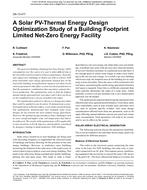The primary function of a lubricant is to reduce friction and minimize wear. It achieves this by interposing a film between moving surfaces that reduces direct solid-to-solid contact or lowers the coefficient of friction. Understanding the role of a lubricant requires analysis of the surfaces to be lubricated. Although bearing surfaces and other machined parts may appear and feel smooth, close examination reveals microscopic peaks (asperities) and valleys. Lubricant, in sufficient amounts, creates a layer thicker than the maximum height of the mating asperities, so that moving parts ride on a lubricant cushion.
Tests for Boundary and Mixed Lubrication
Refrigeration Lubricant Requirements
Synthetic Lubricants
Mineral Oil Composition and Component Characteristics
Lubricant Additives
Lubricant Properties
Lubricant/Refrigerant Solutions
Lubricant Influence on Lubricant Return
Lubricant Influence on System Performance
Wax Separation (Floc Tests)
Solubility of Hydrocarbon Gases
Lubricants for Carbon Dioxide
Solubility of Water in Lubricants
Solubility of Air in Lubricants
Foaming and Antifoam Agents
Oxidation Resistance
Chemical Stability
Retrofitting from CFC/HCFC to Other Refrigerants
ISBN: 978-1-939200-98-3 (for SI versions of chapters)
ISSN: 1930-7217 (for SI versions of chapters)
Citation: 2018 ASHRAE Handbook–Refrigeration
Product Details
- Published:
- 2018
- ISBN(s):
- 9781939200983
- Number of Pages:
- 36
- Units of Measure:
- SI
- File Size:
- 1 file , 2.5 MB
- Product Code(s):
- D-R122018SI


